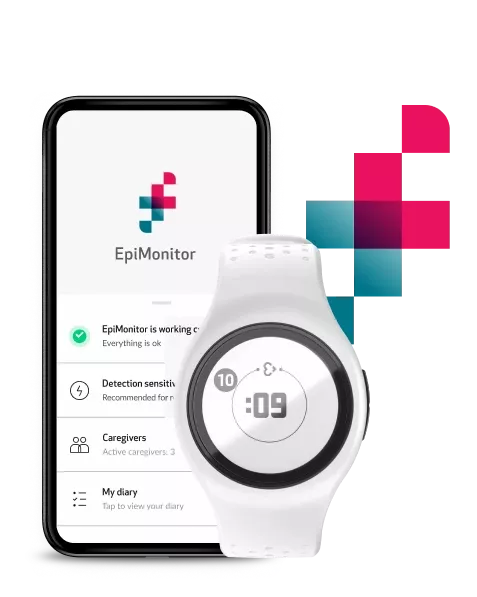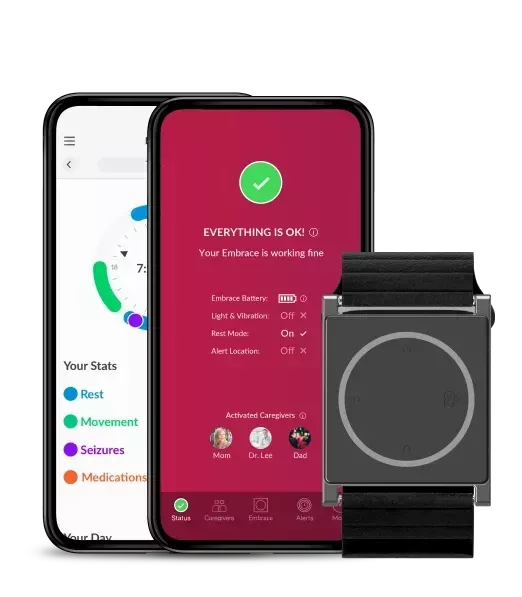Harper’s EpiMonitor story - Gaining a sense of freedom

A lack of freedom can be a common feeling among people living with epilepsy. Individuals may feel limited in participating in certain activities, or if they do, they must be more cautious in case they experience a seizure.
This concern extends to caregivers as well. While they want their loved ones to enjoy a fulfilling life, they often feel anxious about them experiencing a seizure when they are not there to help.
Whether you’re living with epilepsy or caring for someone who is, we want to create a world where epilepsy doesn’t get in your way, and you can live your life to the fullest with peace of mind.
Like many caregivers, after Amanda learnt that her daughter Harper had epilepsy, she was constantly worried about when she’d experience her next seizure and began to see this affecting Harper’s freedom and her ability to participate in activities.
We bring you Harper's story through the words of her mother, who recounts how her daughter was first diagnosed with epilepsy, and how EpiMonitor helped her regain her independence.
Harper’s Story
How it all started
Harper is an 18 year old girl with a passion for playing video games.
Her epilepsy journey started as febrile seizures on January 18th 2007, when she was 16 months old. Over the next 18 months, Harper went on to have 4 more febrile seizures triggered by sudden high fevers related to illness. The doctors told us not to worry, as this was common for infants and toddlers and she would grow out of them.
“The first non-febrile seizure event will forever be ingrained in my memory as a mother”
June 28th 2012 started out as a normal summer day. Harper had been dropped off at summer day camp while I headed to work. 30 minutes into my workday, I received the scariest phone call I had received in my life up to that point – my child just had a seizure at summer camp.
I remember questioning if they were contacting the right parent about the right child. I remember dropping everything and leaving work, driving like I was qualifying for NASCAR to get to her. To avoid the expensive transport bill, we drove her to the hospital emergency room, where they ran bloodwork and brain scans, and sent us home with a referral for a neurology appointment.
Several weeks later, neurology confirmed her diagnosis of generalized and absence epilepsy, beginning our journey that continues to this day.
Looking back, there were signs that, what was initially identified as febrile seizures, were more than just that. I can remember being at the beach, watching her playing in the shallow water and I could tell that she was not entirely present. There were moments where she seemed confused and disoriented for no apparent reason.
If only I had been more educated about seizures and epilepsy, I could have gotten her help sooner. I frequently questioned if I was a terrible parent.
12 years later, she has absence, focal awareness and generalized convulsive epilepsy.
Overcoming challenges
Like many others, finding the right combination of medications has been a challenge for the last 12 years. There were even a couple of times where she would go up to 5 years without any seizures and then they seemed to come out of nowhere. However, since 2021, she has consistently had seizures several days a week.
In January 2023, the neurology team suggested a VNS implant to help minimize the number of seizures. We are still in the process of finding the right strength for the implant to work completely. The VNS has lowered the frequency and length of convulsive seizures, but has not stopped them.
From a social standpoint, Harper has been stigmatized, disallowed to participate in sports or school activities, ostracized by peers, teachers and coworkers. She attempted to attend college but found the absence and focal seizures made the workload at school too difficult and had a seizure on campus that ultimately resulted in her medically withdrawing from school. She cannot drive, cannot work and cannot attend school as of now. She spends much of her time online and is hopeful to return to college in a virtual capacity soon.
Empatica’s technology
While researching online, we came across Empatica’s Embrace wearable. It had just launched and Empatica was beginning trials.
We participated in the initial study for the original Embrace and used it until her seizures were controlled for several years and thought she had grown out of them (as the medical practitioners had mentioned).
Flash forward to 2024, where we again looked at options that would afford her a level of independence that she could feel comfortable with. We found that Empatica’s EpiMonitor was the newest option and they were also starting a seizure forecasting study. We felt it was the best option to hopefully give her some independence and me, as her parent, some peace of mind.
“The EpiMonitor gives me peace of mind to know I can let her out of my sight”
EpiMonitor sends alerts for possible convulsive seizures, so I can respond to Harper as quickly as possible. Also, it has been a great help for sleep tracking (a big trigger for her) and signaling/alerting for possible seizure activity that impacts her heart rate or body temperature.
As a now 18 year old, Harper deserves her independence. We are hopeful that as we continue to use EpiMonitor and again become more stabilized with her seizure activity, she can return to college, find employment and live a full life she is proud of with fewer limitations.
Looking to the future
Harper had hopes to study biology and become an exotic animal veterinarian. Right now, she does not feel that will be possible, but she is hoping she can continue to explore options to work with animals in other ways.
The best advice I can give other parents of children with epilepsy is – don’t give up! Don’t stop looking for answers and ways to make the best of a challenging situation.
If you are living with or caring for someone with epilepsy and have an EpiMonitor story you’d like to share, we’d love to hear from you. Please share your story via email at support@empatica.com or post your story on social media using the hashtag #MyEpiMonitor.


